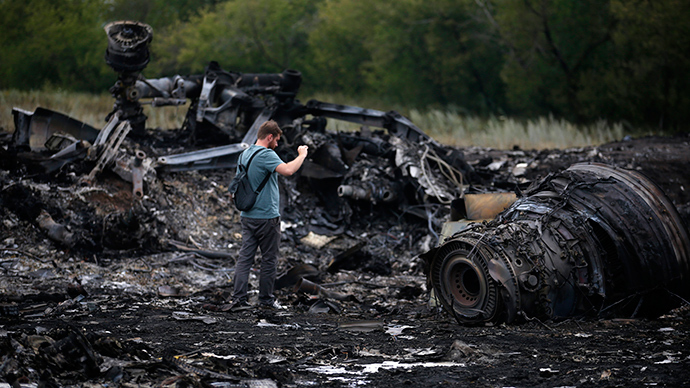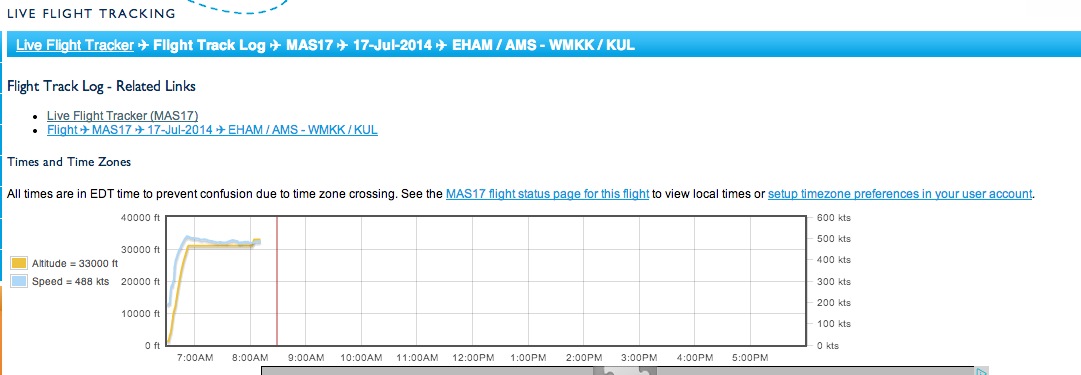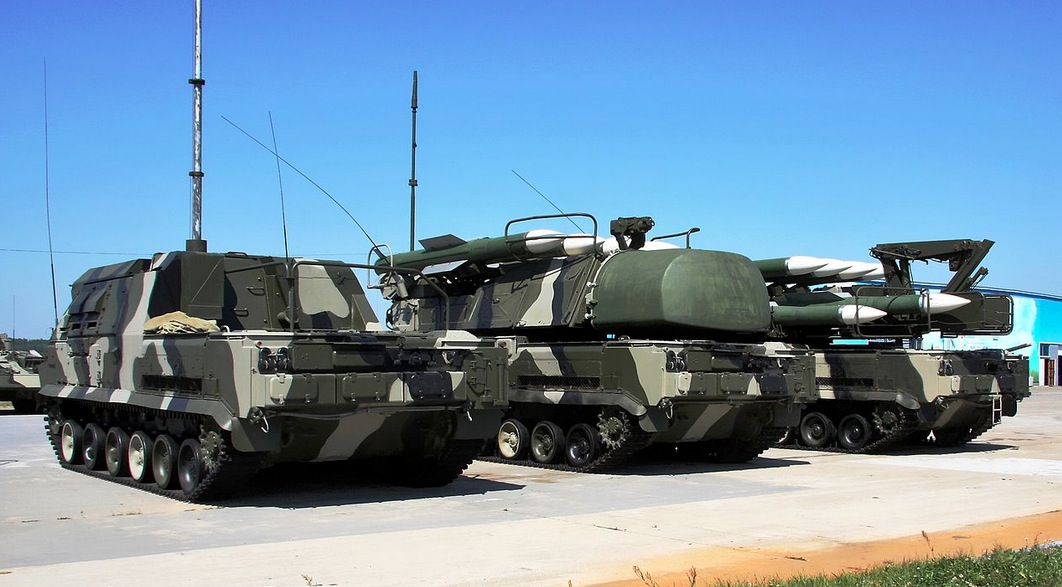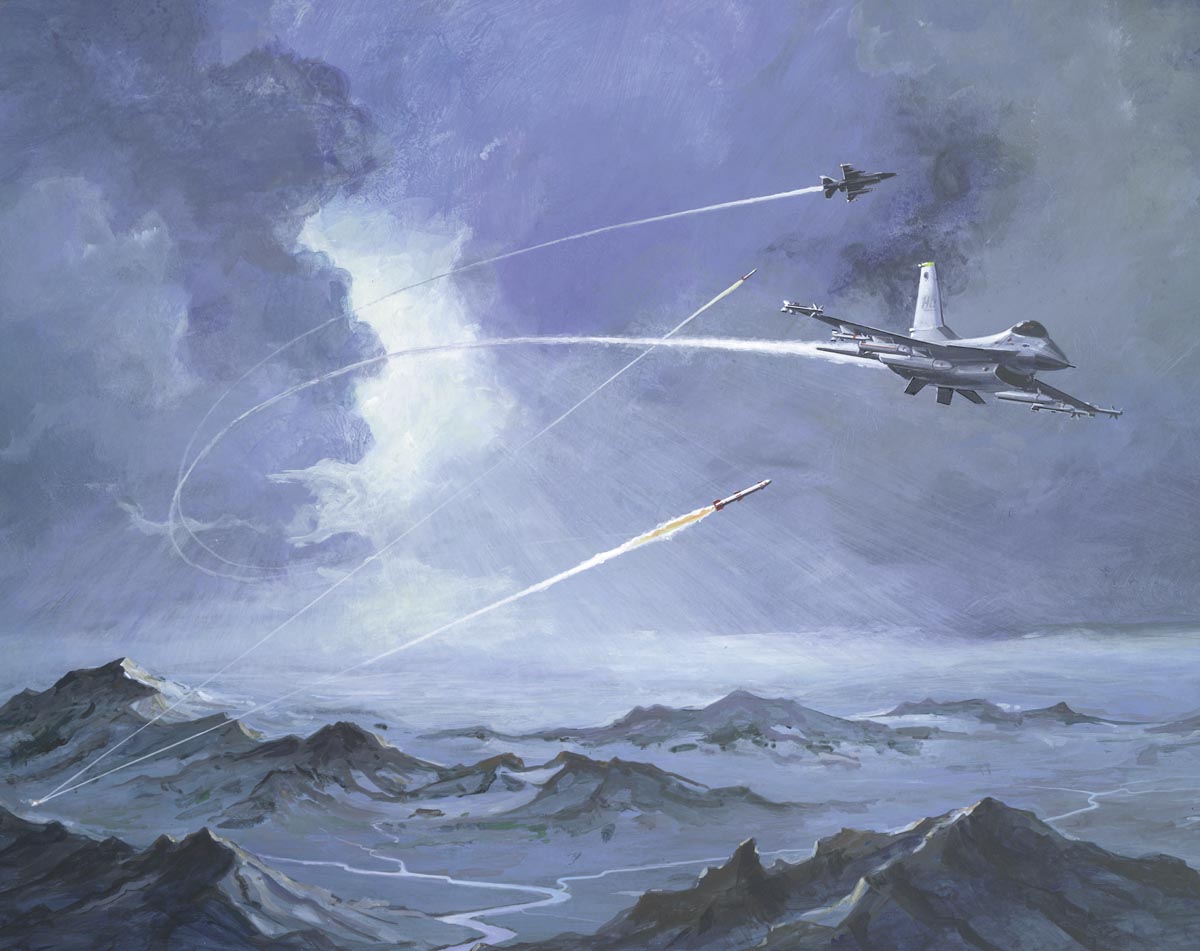MH17: All You Need To Know About The Missile That Shot The Boeing 777
The weapon used to shoot down the Boeing 777—which was carrying 298 people—is believed to be the Buk surface-to-air missile system—known in Western parlance as the SA-11 Gadfly or SA-17 Grizzly.
While updates of crashed MH17 are coming in, there are already suggestions that it was shot down by surface-to-air missile
A journalist takes photographs at the site of Thursday's Malaysia Airlines Boeing 777 plane crash near the settlement of Grabovo, in the Donetsk region July 18, 2014
Image via rt.comAccording to flight data, MH17 was flying at altitude just before the crash, at roughly 33,000 feet
In order to take down a plane at 33k feet, it would require an advanced air defense system. According to the Ukrainian Interior Ministry, the separatists who fired the shot were armed with a Russian-made Buk missile launcher.
Members of the Ukrainian government accused pro-Russian separatist rebels in the region. The most influential rebel group in the area disavowed the claim. The Russian government blamed the Ukrainian government for allowing flights in the area. As of Friday afternoon, the true perpetrators are still unknown.
The Buk, also known as the SA-11, is a medium-range mobile missile platform
The Buk missile system is a family of self-propelled, medium-range surface-to-air missile systems developed by the Soviet Union and its successor state, the Russian Federation, and designed to fight cruise missiles, smart bombs, fixed- and rotary-wing aircraft, and unmanned aerial vehicles.
The Buk can engage targets flying at altitudes well above MH17's last reported figures — by some estimates, as much as 72,000 feet.
washingtonpost.comDescended from the 1970s-era SA-6 Gainful, the Buk is in use throughout the militaries that make up the countries of the former Soviet Union, including Russia and Ukraine
An artist's depiction of a Soviet surface-to-air missile system engaging western combat aircraft.
Image via wikimedia.orgKnown in Western parlance as the SA-11 Gadfly or SA-17 Grizzly, they were designed to defend the mighty Red Army from NATO planes as it would advance across battlefields in a Third World War. They are some of the most potent tactical surface-to-air missiles (SAM) in Russia’s arsenal, said the Teal Group’s Steve Zaloga, an expert on missiles.
thedailybeast.comIt’s a sophisticated surface-to-air anti-aircraft system with a range of up to 25 kilometers high, putting Flight MH17 easily within range. Unlike the powerful, extremely long-range and much-feared Russian S-300 (also know as the SA-10 or SA-20) surface-to-air missile, the Buk is not tied into a national air defense system. The system’s operators have to rely on their own radar, which has limited capability. “Normally it is not netted into the national air defense system,” Zaloga said. “It would be netted into the army’s air defense network.”
The missile operators sit inside a very cramped launch vehicle looking at a basic radar screen that shows the various objects the system is tracking
But without the larger network, that information has very little in the way of context. That explains why its operators may not have had enough information to distinguish the civilian airliner from a military threat. “This definitely could have been an error,” says Steve Zaloga, an expert on missile systems at the Teal Group, a defense-consulting firm in Virginia.
technologyreview.com"It's not super high-tech, but it can do the job," says retired Maj Raymond Finch, an expert in Soviet and Russian weapons systems. "It can go way high. It's a deep strike."
It takes a certain amount of training to set up and use, Finch said. And while he declined to specify who might have been operating any Buk system, he added that, “My guess is that some of the guys on the ground, in the region … are various grades of Russian military specialists.” He added that Ukraine has a number of former and retired Soviet Army officers who could have the expertise to operate a Buk system. “The average guy off the sofa is not going to be able to operate this system.”
thedailybeast.comStill, distinguishing between civilian and military aircraft would be difficult if the system used was lacking the newer tracking systems that use radar signatures and national systems to tell which was which. “The more sophisticated models can,” Finch said. “I know that was the case in Iraq.”
Being a Soviet design, the user interface is fairly simple, says Michael Pietrucha, a former F-4G and F-15E electronic warfare officer and expert on air defenses
Pietrucha says he trained with German forces operating a similar Russian-built system during the 1990s. Pietrucha says that the Buk variant that is likely to have been operated by the rebels might have been especially unable to distinguish between civilian and military air traffic because of a quirk related to aircraft transponders. The transponder is a device that broadcasts an aircraft’s identity when a radar “interrogates” it for information.
technologyreview.comHowever, it is still unclear who actually fired the missile or where it was fired from
US intelligence officials believe the attack from an area controlled by the pro-Russian separatists, according to the president. He stopped short of blaming the group in control of parts of eastern Ukraine, though.
rt.comA Ukrainian Buk anti-aircraft missile battery was operational in the region, the Russian Defense Ministry said, contradicting Kiev’s statements. The battery was deployed at a site from which it could have fired a missile at the airliner, the ministry said in a statement. It said radiation from the battery’s radar was detected by the Russian military.
rt.comEarlier Kiev said it could not have fired a missile at the passing civilian plane because it had no Buk missile launchers deployed in the region. At the same time the Ukrainians said the militias had no Buk systems in their hands, according to a statement from the country’s Prosecutor General.
rt.com



